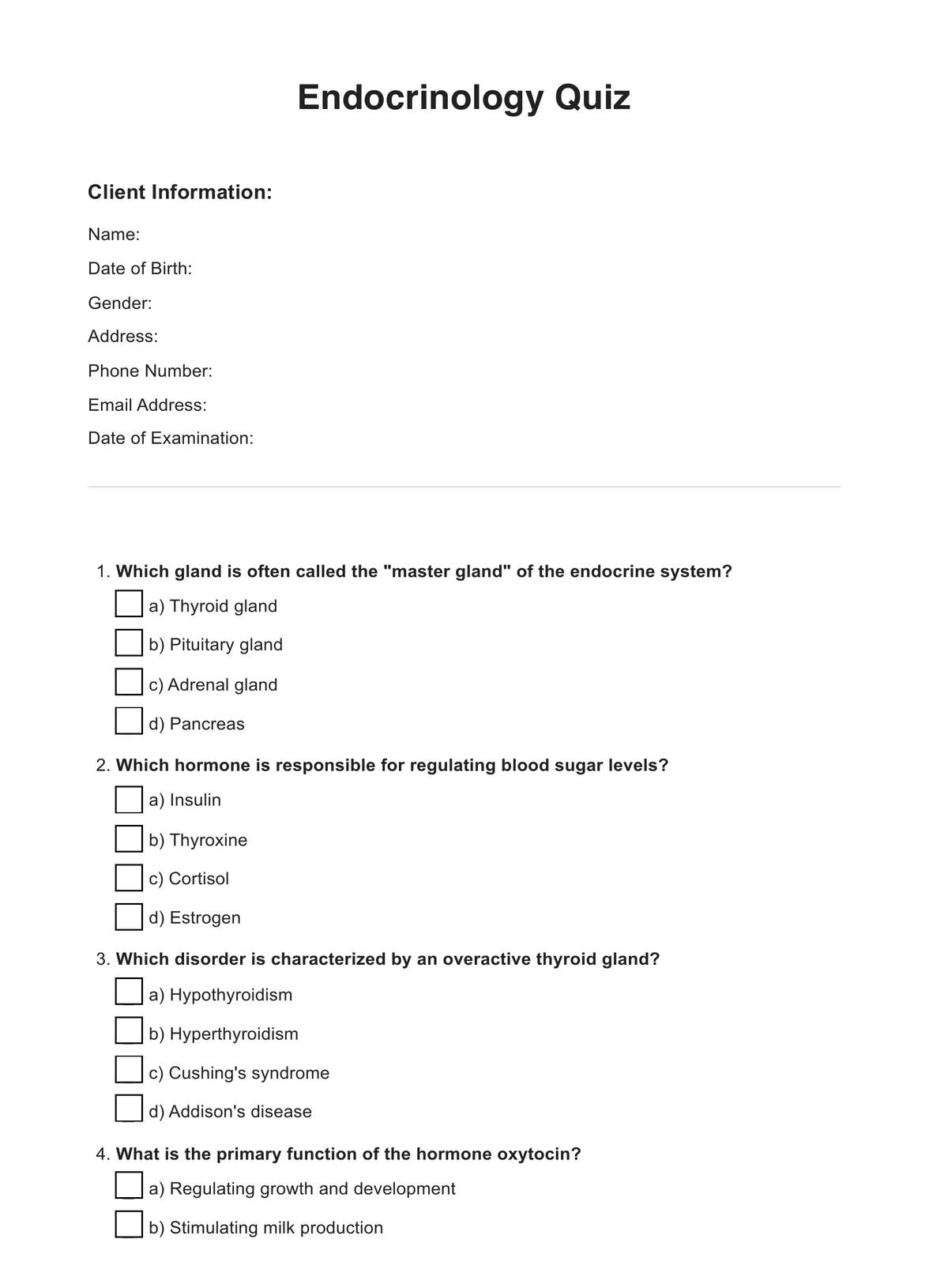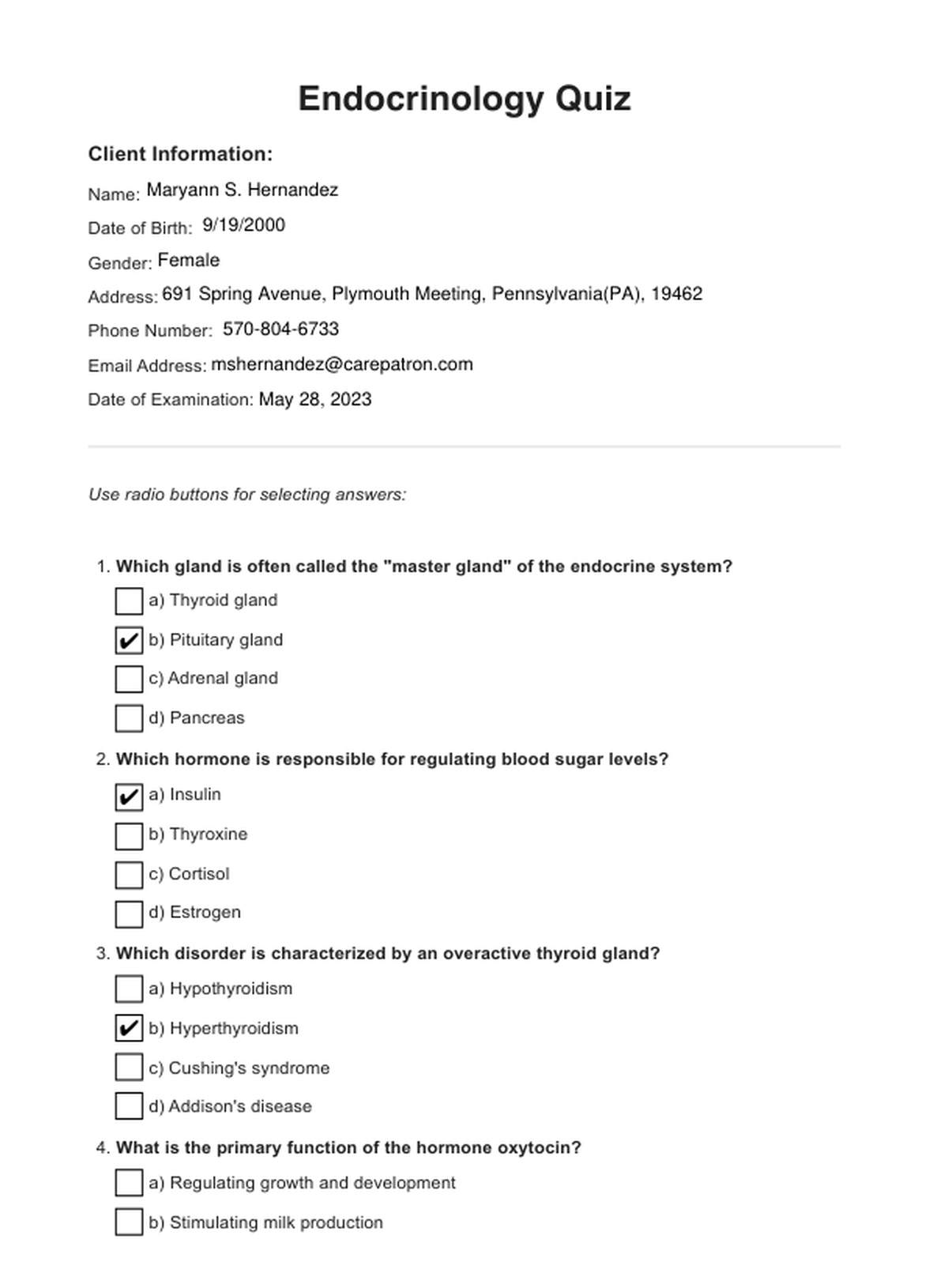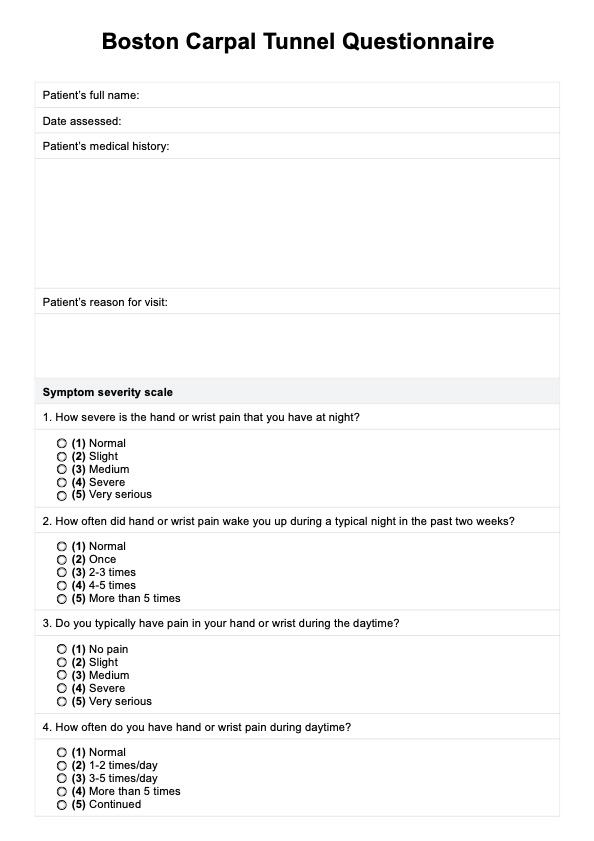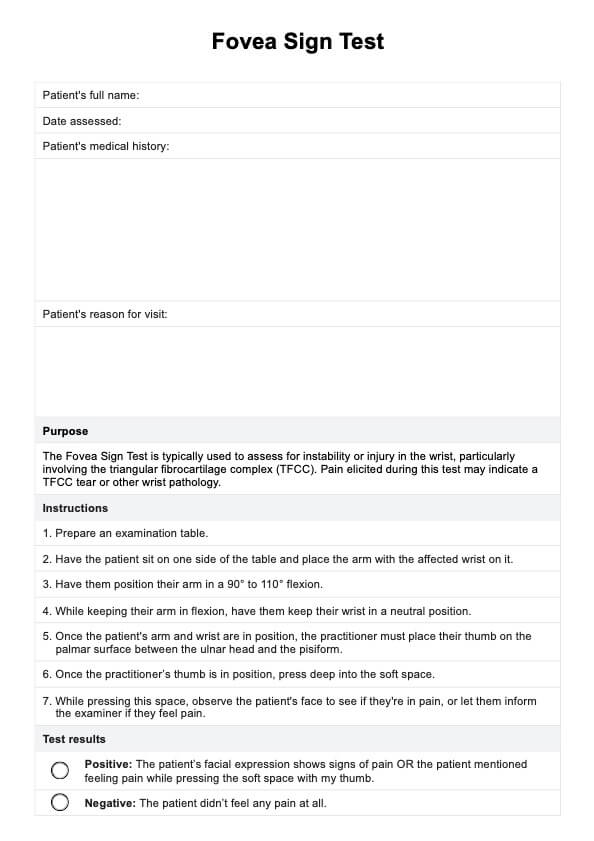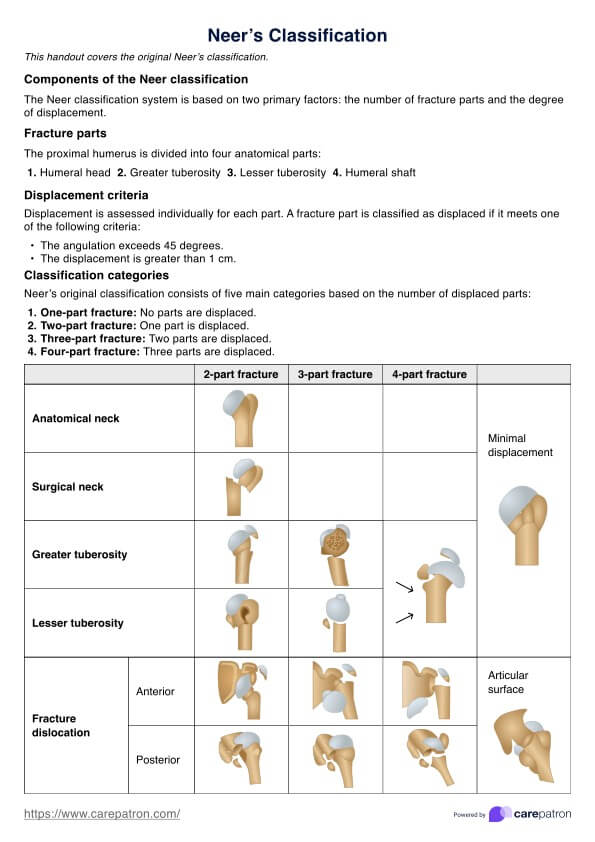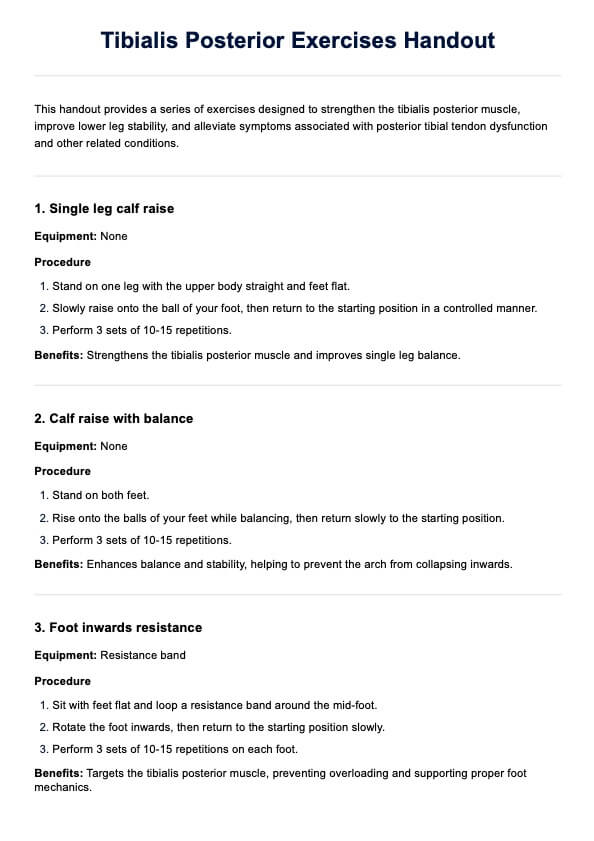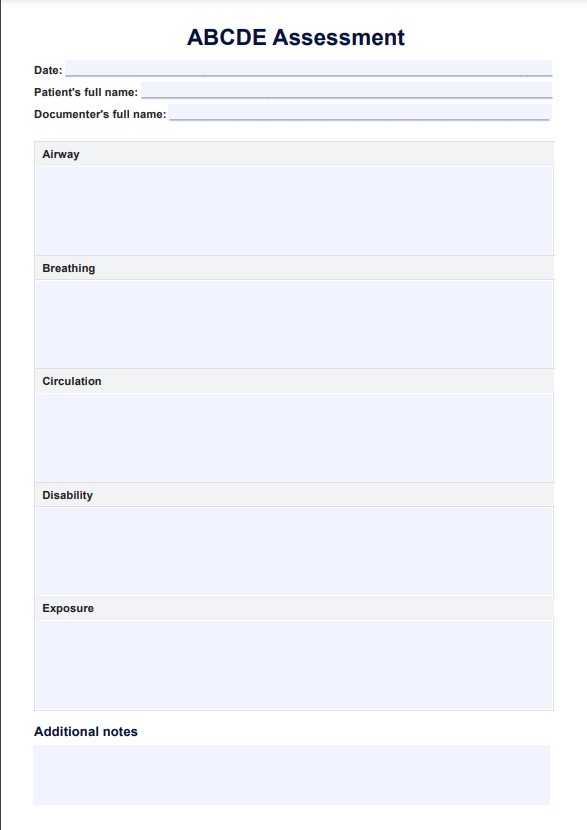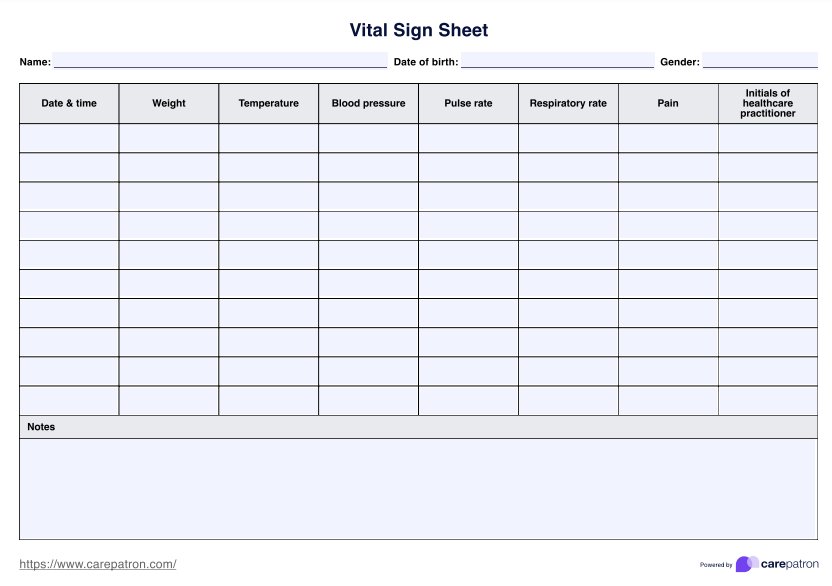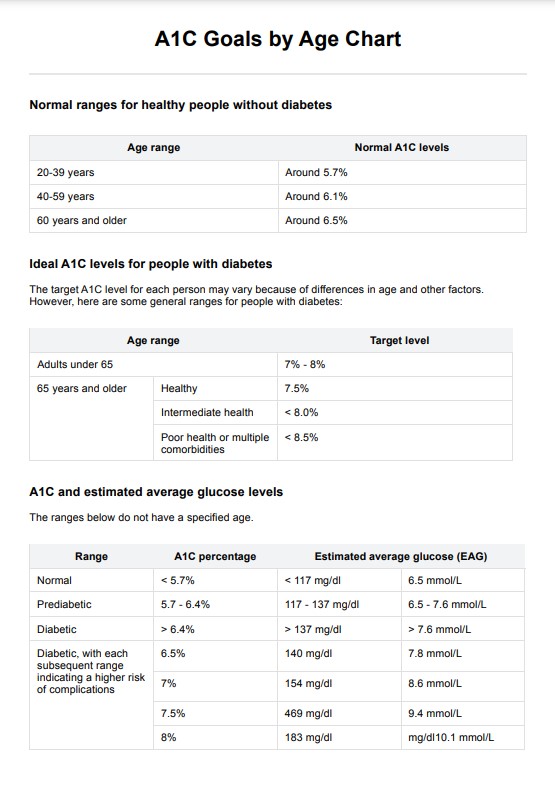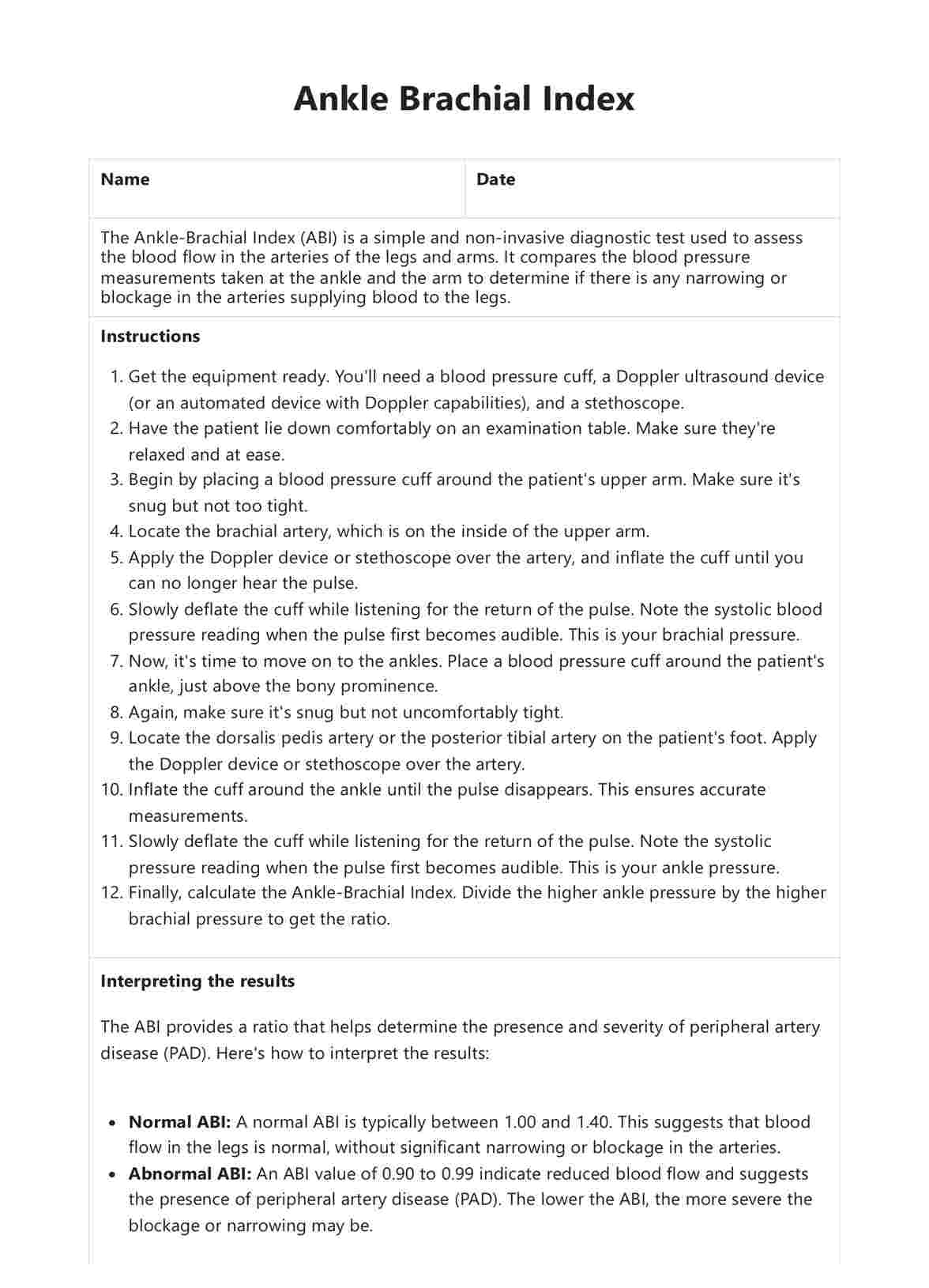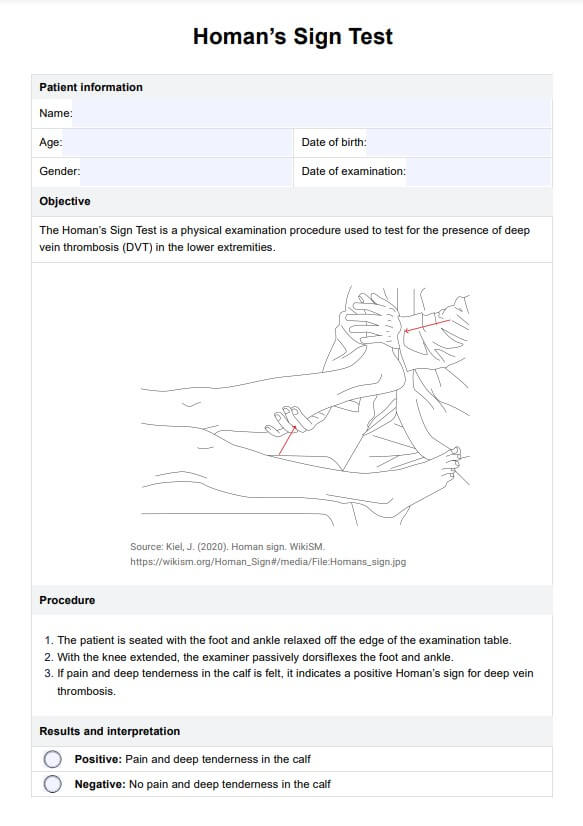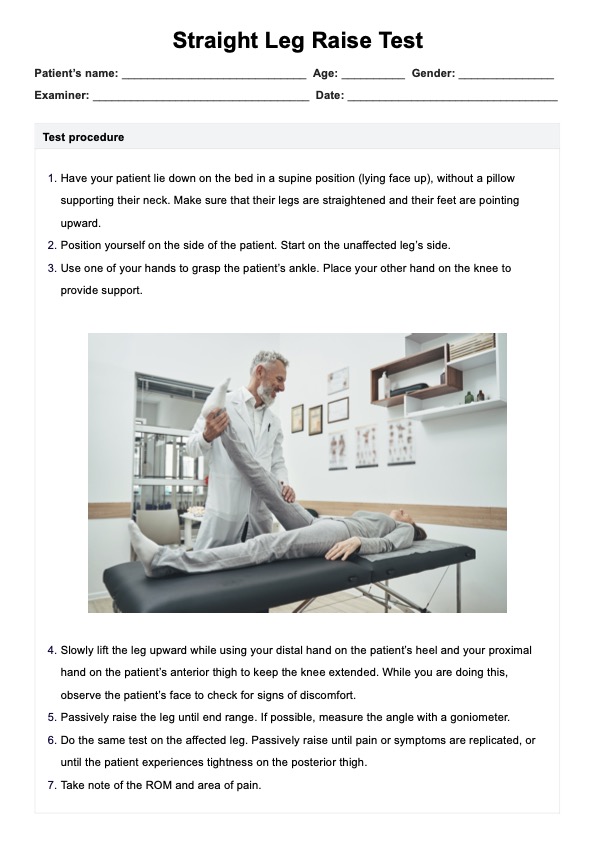Endocrinology Quizzes
Test your knowledge of endocrinology with engaging quizzes. Explore hormone functions, disorders, and more. Challenge yourself today!


What is an Endocrinology Quiz?
Endocrinology quizzes are educational resources designed to test and enhance your understanding of the fascinating field of endocrinology. Endocrinology is the branch of medicine that deals with hormones and their role in regulating bodily functions. These quizzes provide a fun and interactive way to assess your knowledge and identify areas for improvement.
These quizzes cover a wide range of topics related to endocrinology, including hormone production and secretion, hormone functions and signaling pathways, endocrine disorders, and the intricate interplay between different glands and hormones in the body. They may also delve into specific conditions such as diabetes, thyroid disorders, adrenal gland disorders, and reproductive hormone imbalances.
often consist of multiple-choice questions that challenge you to recall facts, interpret clinical scenarios, and apply critical thinking skills. They may include visual aids such as diagrams or charts to enhance understanding and illustrate complex concepts. Some quizzes may also incorporate case studies or real-life scenarios to simulate clinical decision-making and problem-solving.
By engaging in endocrinology quizzes, you can reinforce your knowledge, deepen your understanding of the subject matter, and stay up-to-date with the latest advancements in endocrine research. Whether you are a medical student, healthcare professional, or simply curious about endocrinology, these quizzes provide a valuable tool to assess your proficiency and identify areas where further learning is needed.
Endocrinology quizzes are often available online through educational websites, medical platforms, or mobile applications. They offer a convenient and flexible way to test your knowledge at your own pace, allowing you to review and revisit challenging topics as needed.
Endocrinology Quizzes Template
Endocrinology Quizzes Example
How does it work?
Using/filling out the endocrinology quiz template involves the following steps:
Read the question
Begin by carefully reading each question in the quiz. Understand the information being asked and the options provided.
Analyze the options
Evaluate the answer choices given for each question. Consider their differences and identify the most appropriate response based on your knowledge of endocrinology.
Select the answer
Choose the option you believe to be correct for each question. Click or mark the corresponding letter or checkbox next to your chosen answer.
Review your answers
After completing the quiz, take a moment to review your responses. Ensure that you have answered all the questions and are satisfied with your choices.
Submit the quiz
If you take the quiz online, look for a submit or finish button. Click on it to submit your answers. If you are using a paper-based quiz, double-check that you have provided answers for all the questions and submit it as instructed.
Receive feedback
You may receive immediate feedback on your answers depending on the quiz format. This feedback can help you understand the correct responses and learn from your mistakes.
Evaluate your performance
Take note of your performance on the quiz. Assess which questions you answered correctly and which ones you may have missed. This self-evaluation allows you to identify areas where you excel and need to focus on further learning.
Learn from the quiz
Use the quiz as a learning tool. Review the correct answers and explanations provided for questions you answered incorrectly. Take note of the concepts or topics that require more attention and consider revisiting relevant study materials or resources.
Repeat if desired
If you find the endocrinology quiz helpful and enjoyable, you can take it again or explore other quizzes on the same topic to reinforce your understanding and improve your knowledge.
Remember, endocrinology quizzes serve as educational tools and should be used as a supplement to your learning process. They can aid in self-assessment, knowledge retention, and identifying areas for improvement in your understanding of endocrinology.
When would you use this Template?
This endocrinology quiz template can be beneficial for a variety of individuals, including:
Medical students
Medical students studying endocrinology can utilize this template as a self-assessment tool to test their knowledge and understanding of key concepts in the field. It allows them to identify areas where they need further study and review.
Healthcare professionals
Healthcare professionals, such as doctors, nurses, and physician assistants, can use this template to refresh their knowledge of endocrinology. It serves as a quick refresher or a means to stay up-to-date with the latest developments in the field.
Endocrinology residents
Residents specializing in endocrinology can utilize this template during their training to assess their grasp of the subject matter. It helps them gauge their preparedness for exams and identify areas of weakness requiring additional focus.
Practicing endocrinologists
Established endocrinologists can utilize this template for self-evaluation and continuing education. It provides an opportunity to stay engaged with the subject, reinforce knowledge, and stay updated on emerging trends and research.
Allied healthcare professionals
Professionals such as pharmacists, medical technicians, and researchers interested in endocrinology can benefit from this quiz template. It helps them expand their understanding of endocrine principles, improve patient care, and enhance their contributions to the field.
Curious individuals
Anyone interested in endocrinology can use this template as a learning resource. It provides an engaging and interactive way to explore the fascinating world of hormones and their impact on the human body.
Benefits
Benefits of Using the Endocrinology Quiz Template:
Self-assessment
The template allows users to assess their knowledge and understanding of endocrinology, helping them identify areas of strength and weakness.
Knowledge reinforcement
Users reinforce their understanding of endocrine concepts by engaging in quizzes, improving retention and recall of important information.
Identifying knowledge gaps
The quiz helps users pinpoint areas where they may need further study, allowing for targeted learning and skill development.
Exam preparation
The template is a valuable resource for medical students and residents preparing for exams by simulating the format and content of endocrinology assessments.
Continuing education
Healthcare professionals can utilize the quiz to stay updated with the latest developments in endocrinology, fostering ongoing learning and professional growth.
Interactive learning
The quiz format provides an engaging and interactive learning experience, promoting active participation and enhancing knowledge absorption.
Research & Evidence
The history of endocrinology quizzes as educational resources can be traced back to the emergence of online learning platforms and the advancement of technology in medical education. With the widespread availability of Internet resources, quizzes have become popular tools for self-assessment and knowledge reinforcement.
While specific research on the effectiveness of endocrinology quizzes may be limited, the use of quizzes in medical education has been widely studied and supported. Research has shown that quizzes promote active learning, improve knowledge retention, and enhance memory recall. Quizzing is known to engage learners in the active retrieval of information, which strengthens neural connections and aids in knowledge consolidation.
Studies have also demonstrated that quizzes help identify gaps in knowledge, enabling learners to focus on specific areas that require further study. Regular self-assessment through quizzes has been associated with improved exam performance and increased self-confidence in learners.
In the context of endocrinology, quizzes are a valuable tool for medical students, residents, and healthcare professionals to assess their understanding of hormone functions, glandular disorders, and related concepts. These quizzes align with established educational principles, such as spaced repetition and active recall, which have been shown to enhance learning outcomes.
Furthermore, developing endocrinology quizzes often involves collaboration among subject matter experts, medical educators, and professionals in the field. The content is typically based on established textbooks, peer-reviewed literature, and reputable sources of medical information.
While specific research studies on the efficacy of endocrinology quizzes may be limited, the overall body of research on the benefits of quizzes in medical education supports their use as effective tools for self-assessment, knowledge reinforcement, and active learning. As technology advances, integrating quizzes into digital learning platforms further enhances their accessibility and effectiveness as educational resources.
Commonly asked questions
While endocrinology quizzes are designed to cater to the needs of medical students and healthcare professionals, they can also benefit anyone interested in learning about the endocrine system and related disorders. The quizzes can serve as a self-assessment tool and provide valuable knowledge reinforcement.
Yes, most online platforms hosting endocrinology quizzes are designed to be accessible on various devices, including desktop computers, laptops, tablets, and smartphones. This allows you to access the quizzes from anywhere with an internet connection conveniently.
The duration of an endocrinology quiz can vary depending on the number of questions and the complexity of the content. Some quizzes may have a specific time limit, while others may allow you to work independently. On average, a quiz may take 10 to 30 minutes to complete.
Endocrinology quizzes can be a useful resource for exam preparation. They allow you to test your knowledge and familiarize yourself with the types of questions commonly asked in exams. By practicing with quizzes, you can improve your test-taking skills, identify weak areas, and gain confidence in your endocrinology knowledge.


